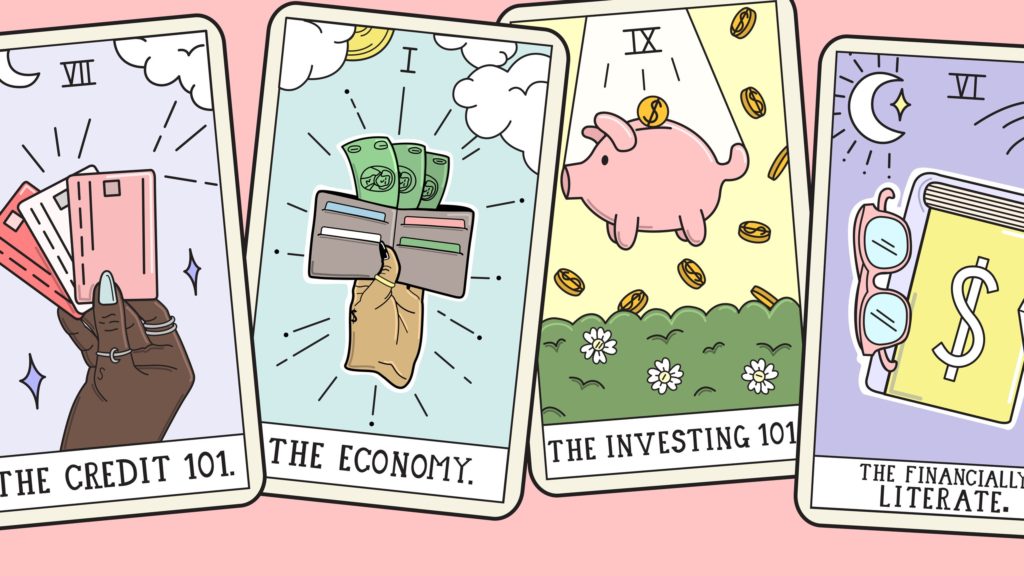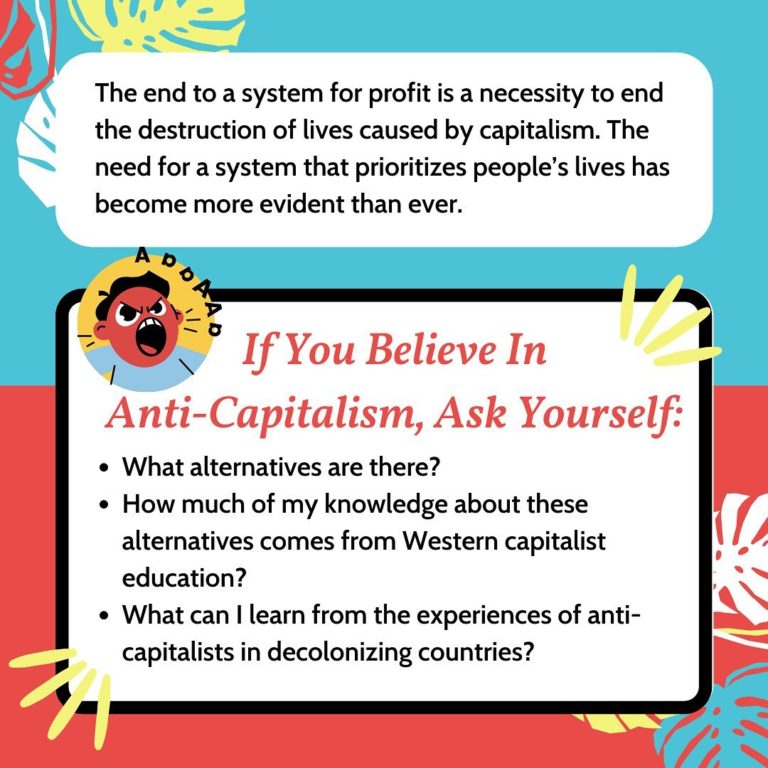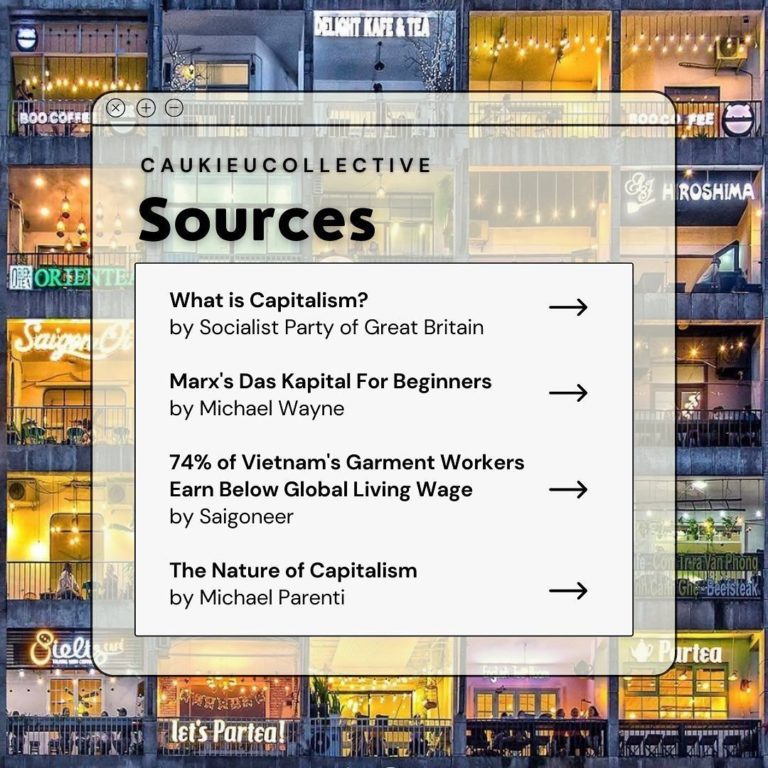Everyday 24,000 people die due to hunger. Meanwhile, millions of tons of food are wasted each year in the United States because it cannot be sold for profit.
Poverty, hunger, and food waste are said to be correlated. But why do all of these things occur and how precisely are they linked? The answer can be found in capitalism.
What is capitalism?
Capitalism is a social and economic system, arising from colonial exploitation, where the land, factories, and natural resources to produce and distribute goods are owned by a small group of wealthy people. This group of people is called the capitalist class. Among this class are names you’ve probably heard of—Jeff Bezos, Elon Musk, and many more.
The class that the majority of people belong to is the working class. We must work in the service of capitalists to have a wage so we can have housing and food to survive.
Working for wages, buying items through markets, and private ownership of land and resources are features of capitalism. However, what defines capitalism is capital.
Capital is money invested to make more money. We use money we earn to buy essential items like food and housing. But capitalists use money to buy labour and machinery so they can make more money. The growth of the original money into more money is called capital.
Capital’s need for growth of money is what drove capitalists to colonize and invade countries, and enslave Black people.
The Origins Of Modern Capitalism
The origins of modern capitalism lie in colonialism, in which European colonialists invaded regions of Africa, Latin America, and Asia in order to extract resources and labor, particularly in the case of the African slave trade. Anti-Black slavery served as the means by which white capitalists gained wealth, an advantage that still shapes our social, political, and economic systems today. Capitalism is inextricable from anti-Blackness and racism.
How the West exploits Vietnam
For those of us who immigrated to the West from decolonizing countries, we must recognize that our home countries are not “poor”, but rather exploited. Vietnam, like most other formerly colonized countries, is incredibly rich, especially in natural resources. The wealth of the capitalist West is built on the extraction of wealth from the rest of the world.
As capital requires constant expansion, capitalists must expand and seek foreign markets to access cheap land, natural resources, and labor. This is why French capitalists colonized Vietnam so they can access cheap land and labour to set up rice and rubber plantations.
Profit Motive
In capitalism, goods and services are distributed on the need for profit, not the needs of the people. In order to cut costs, raise prices, grow or maintain a monopoly in an industry, or even polish a brand image, corporations will throw out food, clothing, and other products rather than distribute to the poor. They will refuse to adhere to regulations regarding worker/consumer safety and environmental damage. Because of the monopolistic nature of regional energy companies, millions of people die every year simply because they cannot afford to heat their homes.
The issues created by capitalism are often looked at as separate occurrences, with little analysis of the overall system that has facilitated these issues. For instance, the burden of alleviating climate change is often pushed onto individuals—telling consumers to use less electricity in their households or recycle plastic bottles—and even those who point out the damage caused by corporations often fail to provide solutions that would address climate change in the long term. This is because people are reluctant to admit that capitalism itself, with its unceasing drive for profit at all other costs, is at the root of the problem.
Socialism is the Solution
The end to a system for profit is a necessity to end the destruction of lives caused by capitalism. The need for a system that prioritizes people’s lives has become more evident than ever.
If you believe in anti-capitalism, ask yourself: What alternatives are there? How much of my knowledge about these alternatives comes from Western capitalist education? What can I learn from the experiences of anti-capitalists in decolonizing countries?
Sources
“What is capitalism?” by the Socialist Party of Great Britain
“Marx’s Das Kapital For Beginners” by Michael Wayne
“74% of Vietnam’s Garment Workers Earn Below Global Living Wage: Study” by Saigoneer
“The Nature of Capitalism” by Michael Parenti










